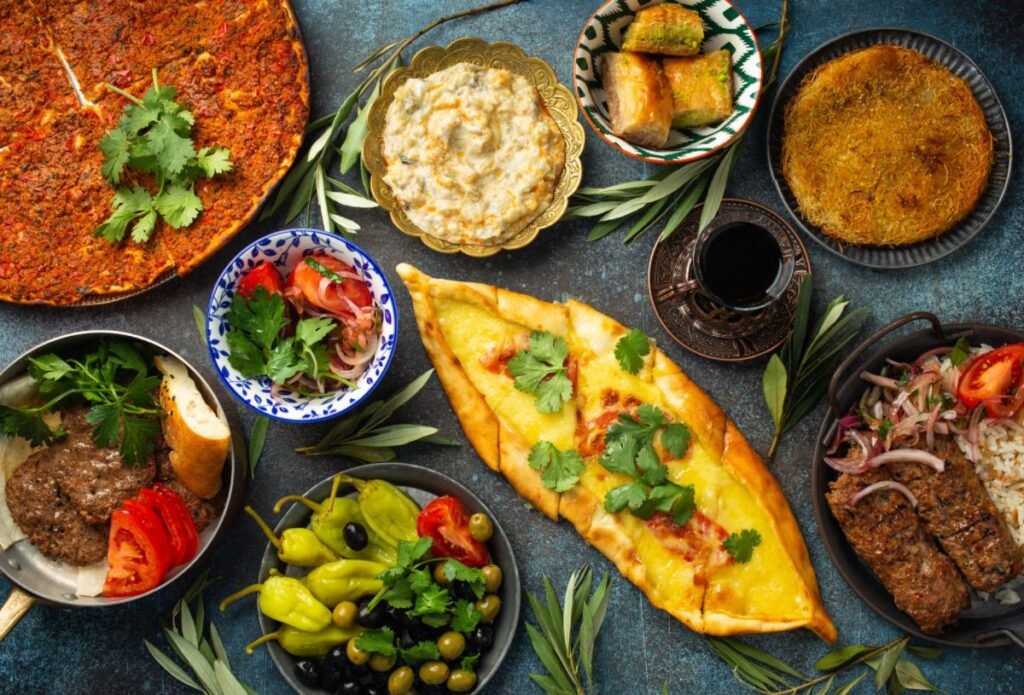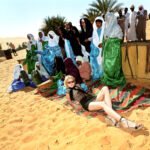Turkey: The Crossroads of Civilizations
Introduction:
Turkey, officially known as the Republic of Turkey, is a transcontinental country located mainly on the Anatolian Peninsula in Western Asia, with a smaller portion on the Balkan Peninsula in Southeastern Europe. It is bordered by Greece and Bulgaria to the northwest, the Black Sea to the north, Georgia to the northeast, Armenia, Azerbaijan, and Iran to the east, Iraq and Syria to the south, and the Aegean and Mediterranean Seas to the west. The capital city is Ankara, while Istanbul is the largest city and a major cultural and economic hub.
Turkey’s geography is diverse, featuring mountains, plateaus, and a long coastline. The climate varies from temperate in the coastal regions to continental in the interior, providing a wide range of natural habitats and biodiversity.
Economically, Turkey is a mixed economy with a blend of modern industry and commerce along with traditional agriculture. It is one of the world’s largest producers of agricultural products, textiles, motor vehicles, ships, and other transportation equipment, construction materials, consumer electronics, and home appliances. The Turkish lira (TRY) is the official currency.
Culturally, Turkey has a rich heritage influenced by various civilizations, including the Greeks, Romans, Byzantines, and Ottomans. Turkish culture is a unique blend of Eastern and Western traditions, with a strong emphasis on family and community. The country is known for its historical sites, traditional music, dance, and cuisine. Turkish is the official language, and Islam is the predominant religion.
Turkey’s history is marked by its strategic location at the crossroads of Europe and Asia, making it a bridge between the East and the West. It has been a cradle of numerous civilizations and empires, from the Hittites and Phrygians to the Byzantines and Ottomans. The modern Turkish Republic was founded in 1923 by Mustafa Kemal Atatürk, following the collapse of the Ottoman Empire after World War I.
Politically, Turkey is a unitary parliamentary republic. The President is the head of state, and the Prime Minister is the head of government. Turkey is a member of various international organizations, including the United Nations, NATO, the G20, and the Council of Europe.
Tourism in Turkey is a major industry, with millions of visitors attracted to its historical landmarks, natural beauty, and vibrant culture. Popular destinations include Istanbul, Cappadocia, Ephesus, Pamukkale, and the Mediterranean and Aegean coasts. The country’s rich history, combined with its modern amenities, makes it a top destination for travelers.

110 Facts About Turkey (2024)
Basic Information
| Number | Category | Details |
|---|---|---|
| 1. | Current Name | Turkey |
| 2. | National Name | Türkiye Cumhuriyeti (Republic of Turkey) |
| 3. | Former Names | Ottoman Empire |
| 4. | Date of Establishment | October 29, 1923 |
| 5. | Date of Independence | October 29, 1923 (from the Ottoman Empire) |
| 6. | Leadership | President: Recep Tayyip Erdoğan, Prime Minister: N/A (position abolished in 2018) |
| 7. | Government Type | Unitary presidential republic |
Geography
| Number | Category | Details |
|---|---|---|
| 8. | Capital City | Ankara |
| 9. | Important Cities | Istanbul, Izmir, Antalya, Bursa, Adana |
| 10. | Land Area | 783,356 square kilometers |
| 11. | Total Area | 783,356 square kilometers |
| 12. | Neighboring Countries (Land) | Greece, Bulgaria, Georgia, Armenia, Azerbaijan, Iran, Iraq, Syria |
| 13. | Neighboring Countries (Sea) | Cyprus |
| 14. | UNESCO World Heritage Sites | Göreme National Park, Hierapolis-Pamukkale, Ephesus (19 sites) |
| 15. | UNESCO World Natural Sites | Göreme National Park and the Rock Sites of Cappadocia |
| 16. | Climate | Temperate in coastal areas, continental in the interior |
| 17. | Biodiversity | Diverse flora and fauna, including the Anatolian leopard and Mediterranean monk seal |
| 18. | Famous River | Euphrates River |
| 19. | Famous Mountain | Mount Ararat |
| 20. | Coastline Length | 7,200 kilometers |
| 21. | Major Islands | Büyükada, Gökçeada, Bozcaada |
| 22. | Longest River | Kızılırmak River |
| 23. | Highest Waterfall | Tortum Waterfall |
| 24. | Largest Lake | Lake Van |
| 25. | Largest Forest | Küre Mountains National Park |
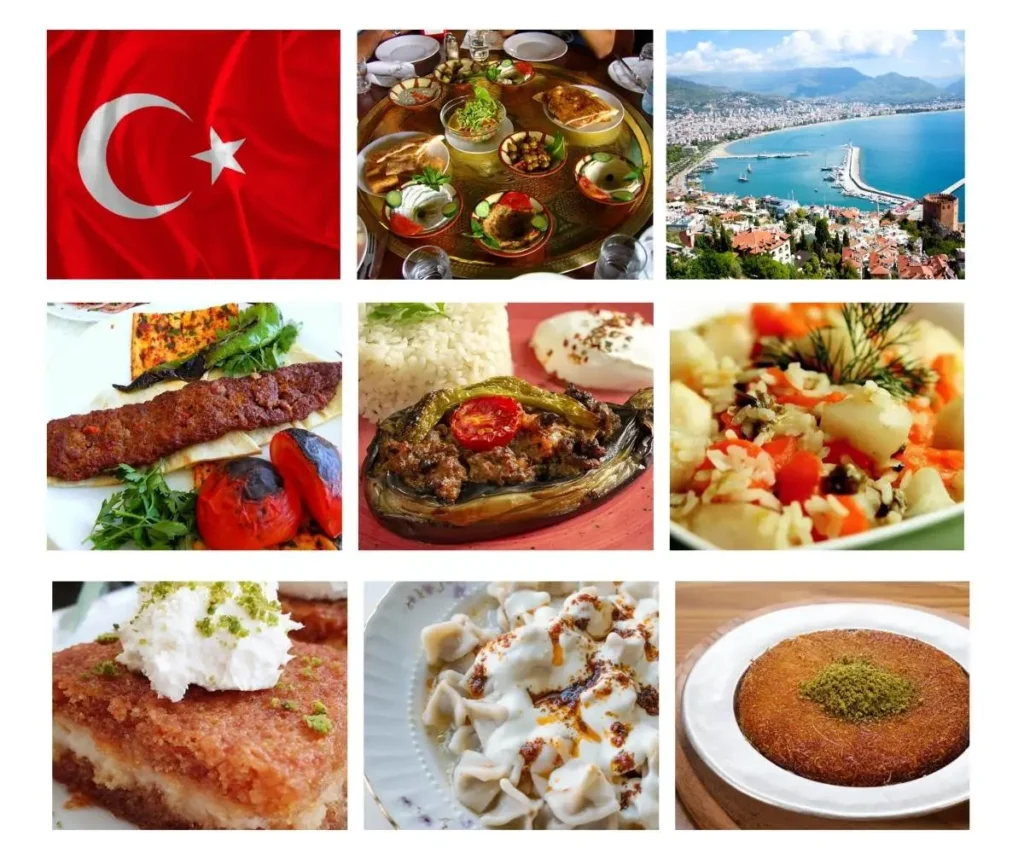
Population
| Number | Category | Details |
|---|---|---|
| 26. | Population (2024) | Approximately 86 million |
| 27. | Population (1950) | 21 million |
| 28. | Population (1900) | 14 million |
| 29. | Projected Population (2070) | 100 million |
| 30. | Population Density | 110 people per square kilometer |
| 31. | Urban Population (%) | 76% |
| 32. | Rural Population (%) | 24% |
Demographics
| Number | Category | Details |
|---|---|---|
| 33. | Ethnicity/Race | Turkish (70-75%), Kurdish (19%), other minorities (6-11%) |
| 34. | Languages | Turkish (official), Kurdish, Arabic, Zaza |
| 35. | National Language | Turkish |
| 36. | Religion | Islam (99.8% Muslim, majority Sunni) |
| 37. | Median Age | 32.2 years |
| 38. | Life Expectancy | 78.6 years |
| 39. | Birth Rate | 15.3 births per 1,000 people |
| 40. | Death Rate | 5.3 deaths per 1,000 people |
Economic Indicators
| Number | Category | Details |
|---|---|---|
| 41. | Monetary Unit | Turkish Lira (TRY) |
| 42. | GDP | $780 billion (2022 est.) |
| 43. | GDP per Capita (PPP) | $32,200 (2022 est.) |
| 44. | Income Level | Upper middle income |
| 45. | Consumer Price Inflation | 19.6% (2022 est.) |
| 46. | Current Account Balance | -$27 billion (2022 est.) |
| 47. | Exchange Rate (Per $) | 1 USD = 17.5 TRY |
| 48. | Unemployment Rate | 12.2% (2022 est.) |
| 49. | Stocks Inward ($ billion) | 150 (2022 est.) |
| 50. | Real GDP Growth (%) | 5.4% (2022 est.) |
| 51. | Labor Force (Million) | 33.8 million |
| 52. | Major Industries | Automotive, textiles, electronics, construction, tourism |
| 53. | Major Exports | Vehicles, machinery, iron and steel, clothing, electronics |
| 54. | Major Imports | Machinery, chemicals, semi-finished goods, fuels |
| 55. | Public Debt (% of GDP) | 38.1% (2022 est.) |
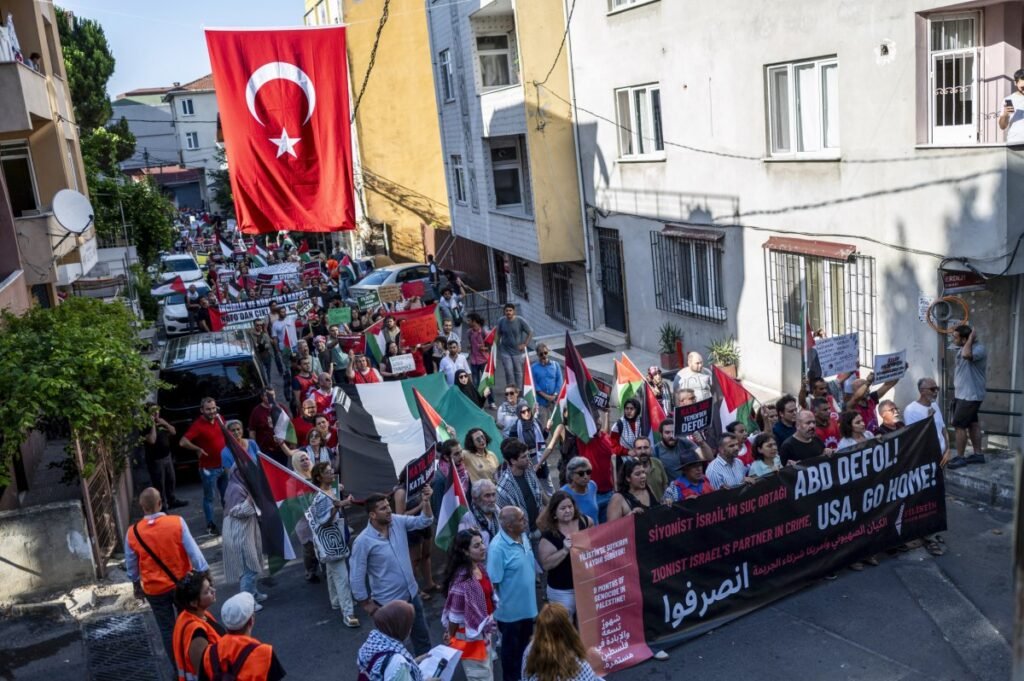
| 56. | Tax Revenue (% of GDP) | 20.4% (2022 est.) |
| 57. | Minimum Wage | 5,500 TRY per month |
| 58. | Average Household Income | $17,000 per year |
| 59. | Inflation Rate | 19.6% (2022) |
| 60. | Interest Rate | 14.0% (2022) |
| 61. | Major Trade Partners | Germany, UK, Italy, US, Iraq |
Social Indicators
| Number | Category | Details |
|---|---|---|
| 62. | Literacy Rate | 96.2% |
| 63. | Fertility Rate | 2.1 children per woman |
| 64. | Infant Mortality Rate | 10.7 per 1,000 live births |
| 65. | Under-5 Mortality Rate | 12.8 per 1,000 live births |
| 66. | National Holidays | Republic Day, Victory Day, Eid al-Fitr, Eid al-Adha |
| 67. | Health Care System | Universal healthcare system |
| 68. | Health Expenditure (% of GDP) | 4.3% (2022 est.) |
| 69. | Obesity Rate | 32.1% of adults |
| 70. | Drinking Water Source | 99% of the population has access to clean drinking water |
| 71. | Access to Sanitation | 96% of the population has access to improved sanitation facilities |
| 72. | Average Life Satisfaction | 5.8/10 |
| 73. | Major Health Issues | Cardiovascular diseases, diabetes, respiratory diseases |
| 74. | Smoking Rate | 27.4% of adults |
Culture and Society
| Number | Category | Details |
|---|---|---|
| 75. | Famous People | Mustafa Kemal Atatürk, Orhan Pamuk, Nâzım Hikmet, Tarkan |
| 76. | Legal Marriage Age | 18 years |
| 77. | Gender Inequality Index | 0.317 (2021) |
| 78. | National Sport | Soccer |
| 79. | Sport Achievements | Multiple Olympic medals, UEFA European Championship participation |
| 80. | National Animal | Grey wolf |
| 81. | National Fruit | Pomegranate |
| 82. | Famous Landmarks | Hagia Sophia, Topkapi Palace, Cappadocia |
| 83. | National Dish | Kebap |
| 84. | Major Newspapers | Hürriyet, Milliyet, Sabah |
| 85. | Major TV Channels | TRT, ATV, Kanal D |
| 86. | Popular Music Genres | Turkish pop, folk, rock |
| 87. | National Theatre | State Theatres, Istanbul |
| 88. | National Gallery | Istanbul Modern |
| 89. | Popular Festivals | Istanbul Film Festival, Antalya Golden Orange Film Festival |
| 90. | Average Internet Speed | 29 Mbps |
| 91. | Most Popular TV Show | Diriliş: Ertuğrul |
| 92. | Most Popular Book | My Name Is Red by Orhan Pamuk |
| 93. | Most Popular Sport | Soccer |
| 94. | Most Visited Museum | Topkapi Palace Museum |
| 95. | Largest Stadium | Atatürk Olympic Stadium |
| 96. | National Anthem | “İstiklal Marşı” |
| 97. | Famous Historical Sites | Ephesus, Troy, Gobekli Tepe |
| 98. | Major Brands | Turkish Airlines, Beko, Vestel |
| 99. | Famous Foods | Baklava, döner, börek |
| 100. | Famous Drinks | Turkish tea, Turkish coffee, rakı |

Education
| Number | Category | Details |
|---|---|---|
| 101. | Best Public University | Boğaziçi University |
| 102. | Best Private University | Koç University |
| 103. | Education Rank | 43rd globally |
| 104. | School Enrollment Rate | 98% for primary education |
| 105. | Average Class Size | 24 students |
| 106. | Notable Alumni | Orhan Pamuk, Aziz Sancar, Elif Shafak |
| 107. | Public Spending on Education | 4.4% of GDP |
| 108. | Number of Universities | Over 200 |
| 109. | Popular Study Abroad Destinations | Germany, United States, United Kingdom |
| 110. | Literacy Programs | Extensive adult literacy programs available |
History
Turkey’s history is marked by its strategic location at the crossroads of Europe and Asia, making it a bridge between the East and the West. It has been a cradle of numerous civilizations and empires, from the Hittites and Phrygians to the Byzantines and Ottomans. The modern Turkish Republic was founded in 1923 by Mustafa Kemal Atatürk, following the collapse of the Ottoman Empire after World War I.
The Flag of Turkey
The national flag of Turkey features a red field with a white star and crescent in the center.
- Red Field: Represents the blood of martyrs who fought for the country.
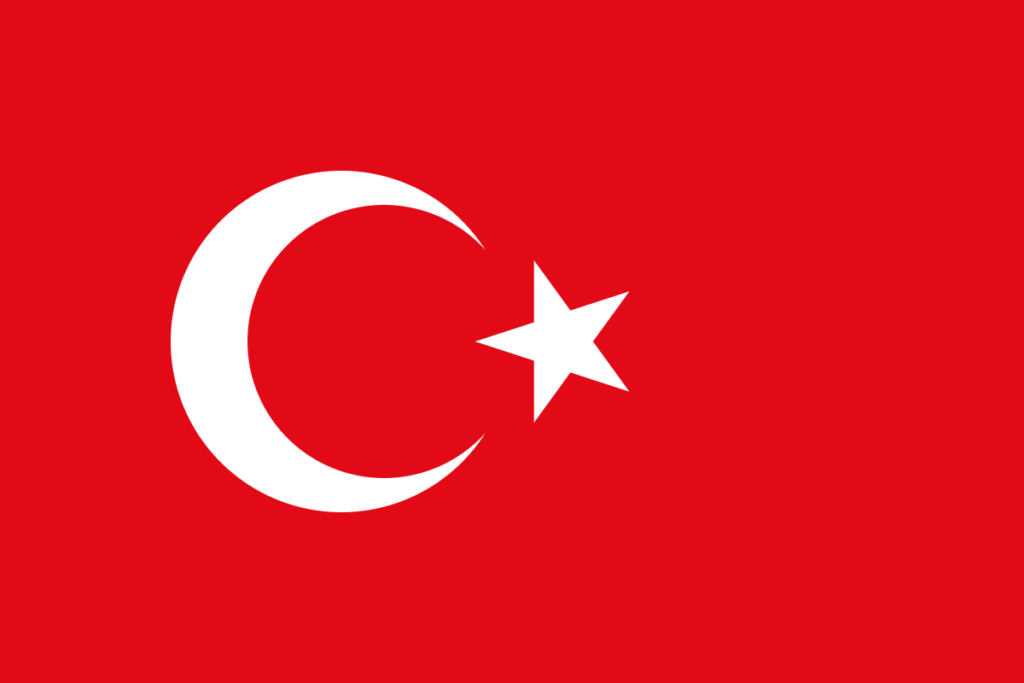
- White Star and Crescent: Symbolize Islam and reflect the country’s Islamic heritage.
The flag symbolizes Turkey’s struggle for independence and its Islamic heritage, reflecting the nation’s pride and cultural identity.
